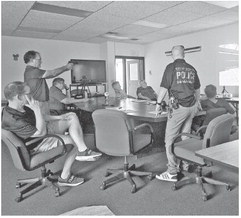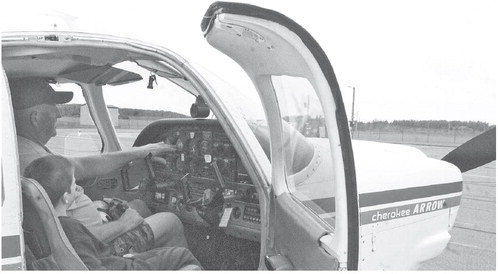Board questions having city police do collections for RVA


Where should the line be between using private collection agencies and getting law enforcement involved to recover publicly-owned property?
That question was up for discussion by members of the Medford police commission at their annual meeting held June 18. The question arose as Police Chief Chad Liske gave his report of department activities over the past year. The police commission provides independent oversight of the police department and is most typically involved with the hiring and discipline of officers. In the absence of those activities, the group meets annually to elect a chairman and receive the annual report from the department.
Commission member Brent Hallgren noted a seemingly large number of property crime incidents the department was involved with. Liske noted that the statistics are impacted by the the RVA using the police department as the mechanism to recover computer equipment and school materials that had not been voluntarily returned by students and their families.
Since the virtual charter school is based in Medford, the items are reported to the Medford police as being thefts. Liske explained that this puts the work on the police department to reach out to the families, who may be located throughout the state, sending them letters warning that theft charges could be filed and giving them a deadline to return the equipment. This is in addition to the work already done by the RVA to recover the items.
If the items are not returned after a warning is sent, a citation and the courts can recover the cost of the items through restitution. Liske said he has been in conversation with the city attorney and the RVA over this, noting the additional work it puts on the Medford police. He noted other schools in the state use private collection agencies to go after unreturned materials rather than using law enforcement and the courts.
Liske noted that if the value is over $5,000, they will refer that case to the district attorney for potential criminal charges.
“It is kind of a work in progress,” Liske said, noting it has been a frustrating thing for the city attorney and courts. He said that once a citation is issued, it doesn’t matter if the equipment is returned, because the restitution would be added to the penalty.
Liske noted that the RVA’s use of the police for equipment recovery is something that is making more work for the court and city attorney. He noted there are times when they get inundated with 60 to 70 at one time. The RVA had 2,436 students over the course of the 20242025 school year. The vast majority of students and families return equipment in a timely manner.
Liske said they continue to work on solutions with the RVA to get items returned and avoid having law enforcement get involved.
Other school and youth-related high points in Liske’s report was that there is a lot of vaping that is taking place among young people. He noted that school resource officer Nicolas Berger is called on frequently to deal with vaping issues. He said there are also increases in THCrelated uses by young people including use of intoxicating CBD products. In the city, people must be 21 to purchase and use these products.
Liske noted a bright spot is that the number of OWIs has been down, which he noted is a result of the bar scene in the city not being what it once was. He also noted that vehicle lock-outs were going down.
The Medford police have training and equipment to unlock vehicles. He said the demand is going down as newer vehicles have remote unlocking capabilities with phone applications. He said he expects to see it to continue to go down over time.
A major highlight of the past year was the search effort for a missing local man whose body was recovered from the Medford Millpond after an apparent drowning. In the search, the city police worked with the Marathon County Sheriff’s Office Dive Team and three different Search and Rescue teams.
Liske also reported on training efforts in the department with officer Dean Dokken the newest state certified instructor after completing the handgun and rifle instructor course. By having certified instructors on staff, the police department can reduce time spent traveling to trainings held outside the area.
In addition, Liske gave committee members an overview and demonstration of the Smokeless Range simulation program which uses converted airsoft pistols in simulated livefire drills.
He explained that while it does not replace time spent on the shooting range, it can be an effective additional training tool which can be set up to simulate a variety of scenarios and for accuracy drills.




